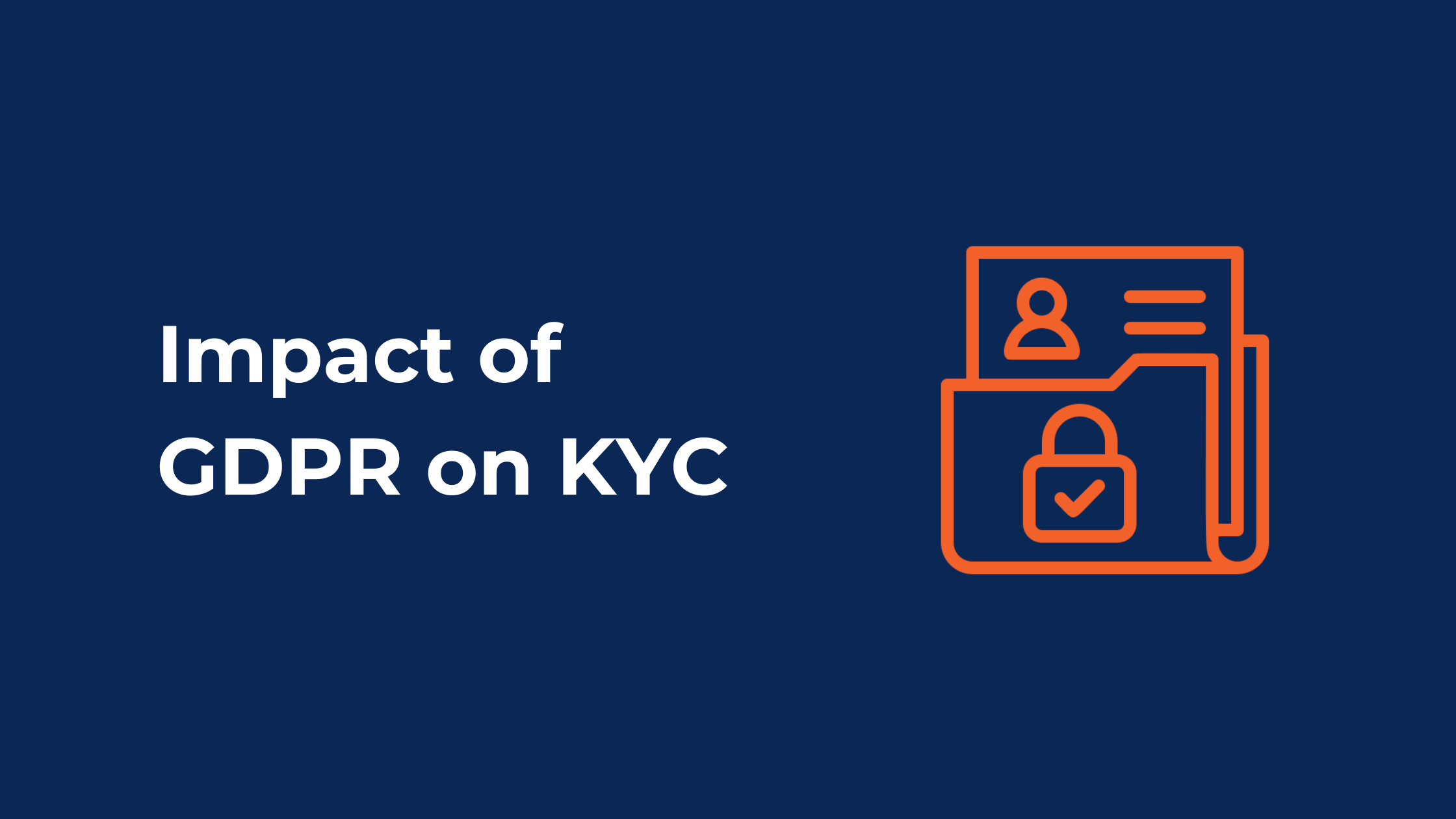Now because there’s a law that advocates that people’s personal information should be kept safe, important procedures like KYC get affected. It’s because KYC processes have to go through consumers’ data in detail, including verifying their names, addresses, and collecting their IDs and passports to prevent them from doing illegal activities. And it’s important too. But on the other hand, safeguarding people’s private information is also essential.
Impact of GDPR on KYC Processes:
Although there are a number of ways in which GDPR has affected KYC processes, we will talk about the most important ones that are hot in the current market of 2024. Below we present to you each aspect of KYC that is affected by GDPR and vice versa. We will also talk about their solutions by giving real-life scenarios.
1) Collecting Only Essential Information:
GDPR tells businesses to collect the bare minimum data for whatever rightful purpose an organisation has. But KYC processes need more than surface-level information in order to safeguard the company’s assets. That’s where GDPR and KYC clash. Collecting more than required data will subject organisations to GDPR’s heavy penalties.
Solution:
Suppose a bank collects basic information such as name, date of birth, and government-issued ID. But for high-risk customers, they ask for additional financial and residency information. This way, the bank complies with GDPR’s policies while still performing the KYC process.
2) Right to Access, Correct, and Delete Personal Data:
GDPR tells businesses to let their customers delete the data after they have used it and not keep it stored for longer than necessary. But there are times when using old data becomes essential for KYC. That’s why companies don’t delete it, leading to GDPR policy violations.
Solution:
Suppose a bank offers its customers an online dashboard where they can update outdated information such as an address or upload new identity documents. If they delete their data, the system automatically assesses whether deletion complies with both GDPR and AML requirements before confirming the request.
3) Data Portability and Transfer Between Organizations:
GDPR tells businesses to let their customers transfer data from one company to another for the KYC process. Although it favours the KYC process, it’s hard for organisations to create a safe digital route for people to transfer their sensitive data from one internal system to another. There are potential dangers of their data becoming vulnerable to any threat while complying with privacy rules.
Solution:
Suppose a business invests in secure transfer protocols and standardised formats for exchanging data. It uses blockchain technology for tamper-proof data transfers between organisations. This decentralised system ensures the data remains encrypted and protected while it’s being transferred.
4) Data Retention and Secure Disposal:
GDPR tells businesses not to store sensitive information for longer than necessary. The time periods vary for different businesses, such as 5 or 7 years. KYC, however, may require storing data for longer periods for anti-money laundering (AML) compliance, leading to confusion between KYC and GDPR requirements.
Solution:
Suppose an insurance company uses data management systems to automatically schedule data for deletion after it expires under GDPR guidelines. The system sends automated reminders to compliance officers, who review the data to ensure it’s no longer required for AML and can be deleted. Businesses should implement clear data retention policies that meet both GDPR and KYC standards.
5) Protecting Sensitive Information of People:
GDPR is all about protecting people’s data online. KYC also focuses on data security, but makes people’s data available in internal systems for security reasons. GDPR mandates strict guidelines for data collection. However, organisations are sometimes forced to store data for longer periods as required by KYC processes. This includes sensitive information like passports and financial documents, raising questions about data protection.
Solution:
Suppose a multinational bank implements biometric verification as part of its KYC process. With facial recognition and fingerprint scanning, consumers’ data is encrypted and stored in a secure cloud that only authorised personnel can access. This ensures compliance with GDPR while protecting sensitive data.
6) Managing Data Breaches and Notifications:
GDPR mandates that businesses notify authorities within 72 hours if stored data is breached. Timely notifications are critical as the data stored for KYC is highly sensitive, and breaches can lead to serious legal and financial consequences. GDPR imposes hefty fines on organisations that fail to notify or manage breaches within the required timeframe.
Solution:
Suppose a financial institution discovers unauthorised access to its customer database. The company immediately informs authorities and alerts affected customers within the GDPR-required 72-hour timeline. It also conducts a thorough investigation and upgrades security protocols to prevent future breaches.
7) Conducting Privacy Impact Assessments (PIAs):
GDPR requires businesses to conduct Privacy Impact Assessments (PIAs) when dealing with large amounts of sensitive data used for KYC purposes. PIAs help organisations identify data protection risks early, allowing for timely solutions that ensure compliance with both GDPR and KYC procedures.
Solution:
Suppose an organisation implements PIAs into its regular risk management strategy. Assessments are conducted when using new KYC technologies or updating existing systems. Regular reviews ensure GDPR compliance during KYC operations.
GDPR has significantly impacted the KYC process. Organisations must follow strict rules or risk hefty fines. Businesses must now collect data responsibly, ensure its safety, and limit storage time. They must also allow users to delete, access, and transfer data as requested. Although these regulations benefit individuals, they pose challenges for businesses. The solutions provided above help tackle these challenges while adhering to GDPR guidelines.
